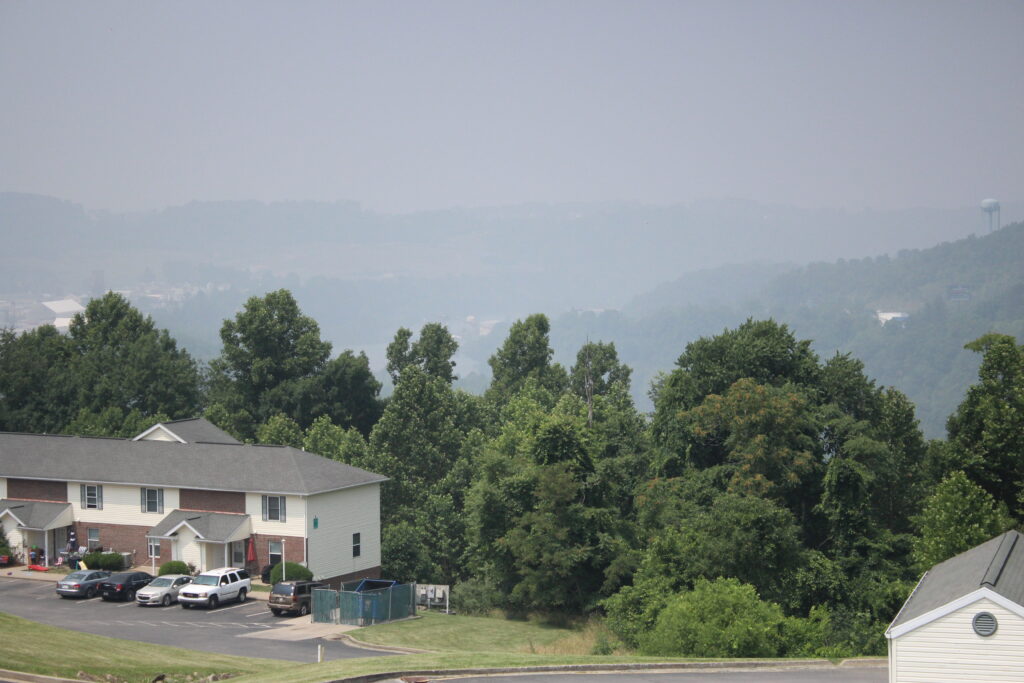Smoke from wildfires in Canada and the Midwest is likely to reach West Virginia in the coming days.
Megan Kiebler is a meteorologist with the National Weather Service in Charleston. She says a shift in wind patterns will bring some smoke to the area Tuesday and Wednesday, and residents may notice haziness in the air. But a jump in the temperature is creating more warnings for sensitive groups than the smoke.
“Wednesday is our forecasted warmest day of this week, we’re going to be in those upper 80s, low 90s threshold, with a little bit of humidity mixed in,” she said. “We’re already messaging for those that are very sensitive to the heat that outdoor activities should be scheduled outside of those warmer time frames. The smoke itself would contribute even more of that issue in the event that we do see it a little bit closer down to the surface.”
Wildfire smoke contains fine particulate matter, microscopic droplets that can be inhaled and cause serious health problems, according to the U.S. Environmental Protection Agency (EPA).
Unlike the Canadian wildfires of 2023 that blanketed much of the eastern United States in a thick and hazardous haze, Kiebler says this round of smoke is likely to stay in the high atmosphere.
If the smoke were to become an issue in the coming days, she reminds everyone, but especially those sensitive to air quality such as the elderly and young children, to stay indoors.
“Stay in rooms that are filtered pretty efficiently,” Kiebler said. “If you have to go out and you feel unsure whether or not you could be impacted by the smoke or the air quality due to the smoke, wear an N-94 or that really strong mask that keeps that at bay from getting into your lungs.”

























